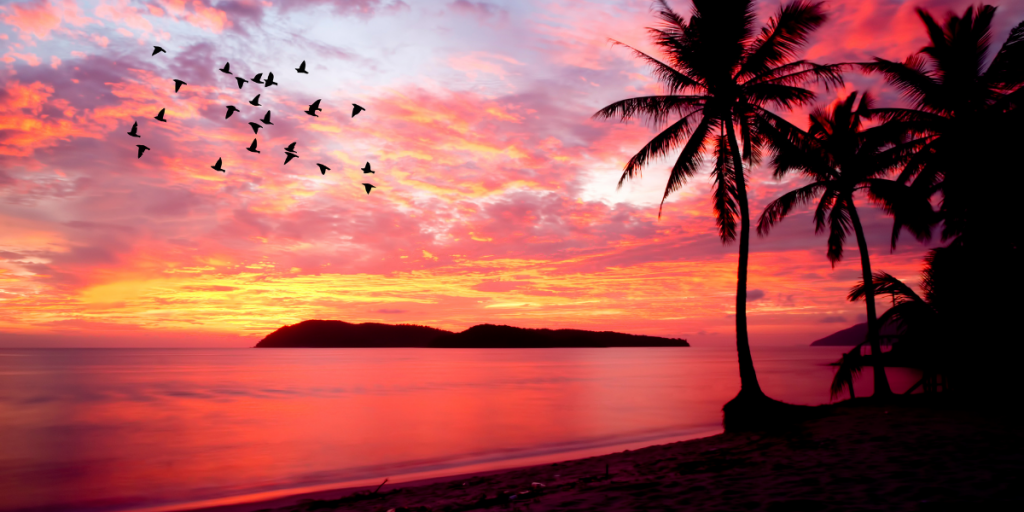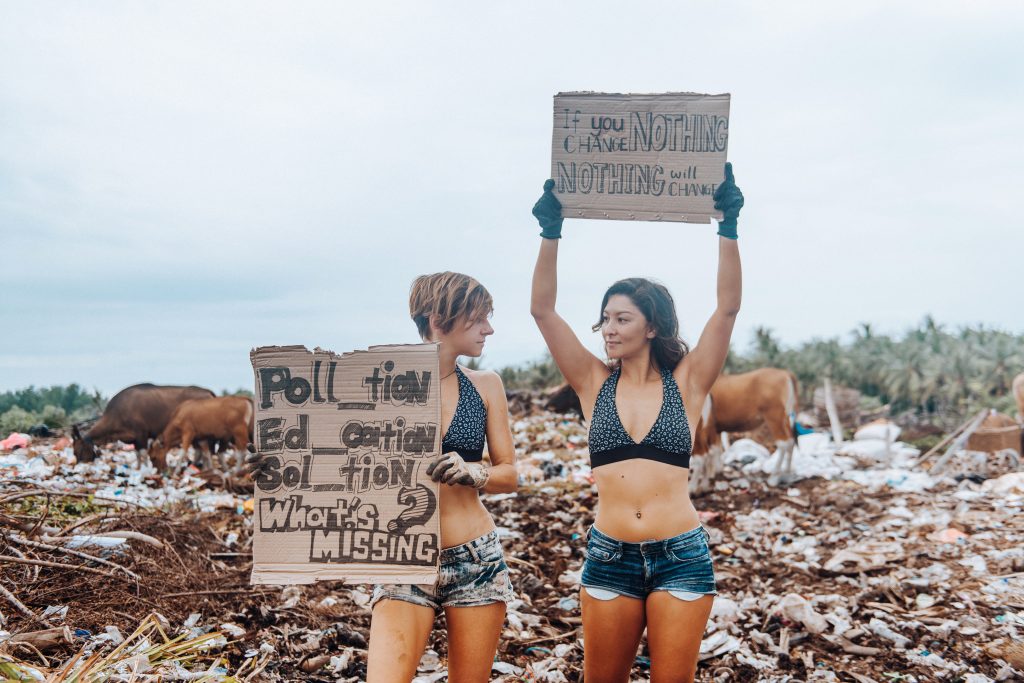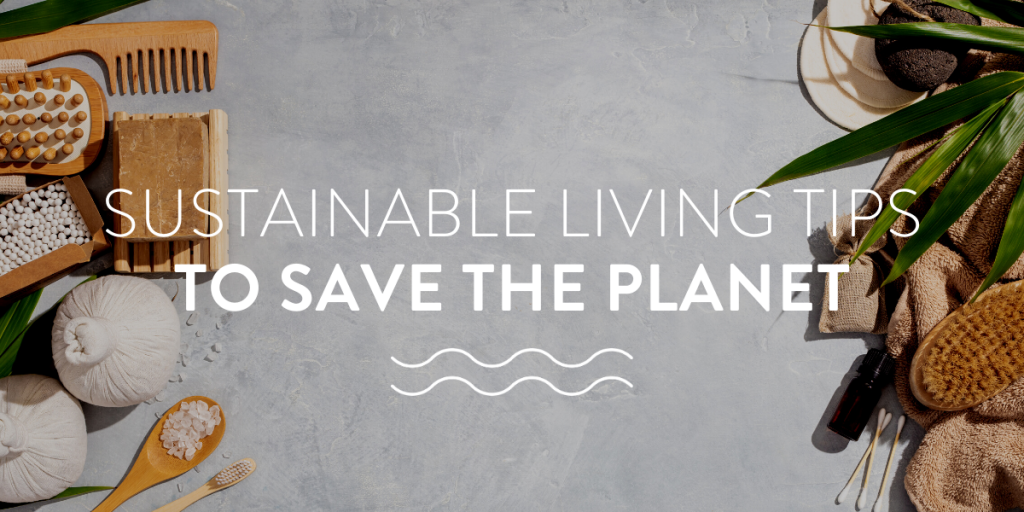Sustainable living is something we’re really passionate about here at Ocean Mimic! Unfortunately there is overwhelming amounts of evidence showing the negative impact us humans are having on our planet every day. Just by going for a short walk we can see all the litter we create. Either we decide it has nothing to do with us and that we can have no impact OR we can all decide to do our bit. Every small change can have an impact! It all starts with you.
You don’t need to sacrifice all pleasures in your life in order to improve the lives of others. You don’t need to go vegan, zero-waste and fossil fuel free overnight, or ever. Some changes may be difficult, some easy, some have a huge impact and some might be small. What is important is that we live the best life that we can and try to regularly take steps towards sustainable living! At the end of the day we need to live by our own values so we can sit down and say – I did my best and I had fun doing it.
Why is sustainable living important?
We live on a beautiful planet, a gorgeous mass of green and blue floating in the black vastness of space. Nature has created endless examples of unbelievable beauty! From the symmetry of snowflakes, the writhing of rivers and the dense mass of jungle to the unbelievable colours and patterns found in flowers and coral reefs. Life has evolved into spectacular creatures and plants: the chameleon, the tiger, the whaleshark, the praying mantis, the orchid etc. We could continue this list all day!
Nature has the ability to bring us back to the present in ways that very little else can. It makes us realise that there is something bigger than ourselves and our thoughts or fears. Reminding us we are a very small piece of a very big world. Sometimes we forget, we get caught up in life and our own little dramas, but when we see a spectacular sunset or a rainbow appears out of the rain it’s a reminder. We want to protect what we love.

Nature:
In today’s world we have become so disconnected from nature. We want things, we want a bigger house and a faster car. We want more, we want what is easy, we want it faster and we are disconnected from how our choices impact the world.
So now (surprise surprise) our planet is suffering. The rich ecosystems which used to fill our jungles, our oceans and savannahs are diminishing. As much as 50 percent of individual animals that once shared Earth with us are already gone, as are billions of populations. The world has lost roughly half its coral reefs in the last 30 years. Even if the world could halt global warming now, scientists expect that more than 90 percent of corals will die by 2050. In just 40 years an area of rainforest the size of Europe has vanished. Half the world’s rainforests have been erased in a century.
However, ultimately it is the human race which has limited time left. We have recently seen first hand the resilience of nature and its ability to quickly bounce back without the presence of humans. The first Covid-19 lockdown lead to a huge reduction in air pollution and nature making a come back, venturing into cities and towns while humans were absent.
Nature will run its course. This is a human issue and what we do next will be vital.
Humans:
All of us will see and many already are seeing the huge impact of climate change, ocean plastics and deforestation on human lives. People near the coasts or on low lying islands will see the water licking a little further up the beach towards the houses. Many of us are feeling a more aggressive climate – forest fires, hurricanes and storms are on the rise.
The implications of our impact on the planet are way beyond seeing natural beauty die. It hits a lot closer to home. It is predicted that by year 2100, 2 billion people – about one-fifth of the world’s population – could become climate change refugees due to rising ocean levels. An estimated 70 percent of fish populations are fully used, overused, or in crisis as a result of overfishing and warmer waters. Approximately three billion people in the world rely on fish as their primary source of protein and may face malnutrition and possibly starvation.
Is there hope?
Absolutely. As dire as the situation feels things are getting better. There is hope every time someone skips the straw, signs a petition, walks in a protest or turns down a plastic bag. All of the huge problems facing the world can be reduced and maybe even solved. To do so we need people to say:
- We have a huge problem on our hands
- It is urgent
- I have the power to change the world for the better.
We have so much power as individuals in each of our day to day choices. Power that many of us do not recognise or take advantage of. It may be tempting to fall into the trap of feeling like your choices don’t matter. The fact is that you know it isn’t true. Every movement is made up of individuals. You have a voice that can inspire others and can campaign for change. Everyone can make small everyday changes that will have a real impact.

Tips, tricks and swaps for sustainable living from the Ocean Mimic Ambassadors:
Now you’ve read about some of the reasons why sustainable living is important here are some tips to help you do your bit …
Tips / tricks:
- Shop at op-shops / charity shops. It’s a great way to find awesome unique pieces and give them another life too.
- Get creative and challenge yourself! Can you use just 1 product for cleaning your body, clothes and home? OR can you give that old product or item a new purpose (e.g. t-shirts into tote bags)? Check out our our Insta series called fri-DIY for reels to help with this.
- Make sure to use what you have before buying anything new (even if the new one is a more eco-conscious product)
- If you really need a new item, go for sustainable options and do your research – check out our blog for help with looking for sustainable fabrics or the OM store if you’re in need of swimwear…
- Make your own products and go back to basics. Could you grow your own fruit and veg? Or make your own cleaning products and cosmetics from natural / organic ingredients? Check out our blogs on how to make your own shampoo or deodorant for help with this!
- If veganism isn’t for you try to reduce your fish and meat consumption. Having a few meat and fish free days a week makes a difference.
- Use reef safe products, especially if you spend lots of time in the ocean.
- Don’t aim for perfection, make small changes gradually over time!
Swaps:
- Bring your own reusable cup, water bottle, tupperware etc.
- Carry a re-usable bag so you don’t need a plastic one. Also stash a few in the car in case you forget!
- Switch to solid cosmetics (shampoo, soaps, toothpaste etc.) and metal razors to avoid plastic packaging.
- Find a zero waste / bulk store near you and keep any old containers to use rather than buying plastic wrapped.
- Switch to plastic free period products – menstrual cups, reusable pads and period pants are all available.
“The greatest danger to our planet is the belief that someone else will save it”
Robert Swan
We hope that the information and sustainable living tips we’ve shared inspire you to create a better world and a life that you are proud of!
We’d love to hear about any tips you have or what you’re doing to live a more sustainable life …


